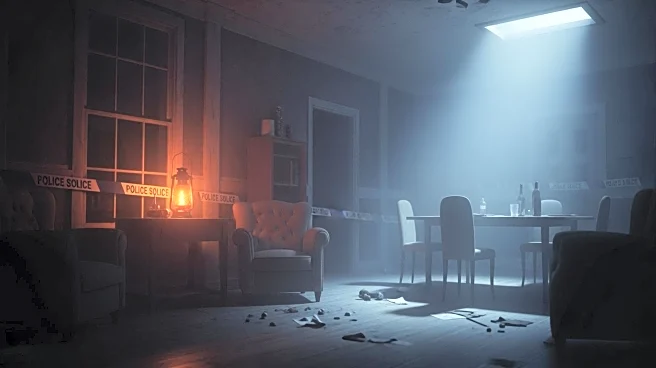What's Happening?
GameSpot has released a list of the best survival horror games to play in 2025, showcasing titles that blend psychological storytelling with intense gameplay. Among the highlighted games are 'Signalis,'
a retro-inspired sci-fi horror game developed by Rose-Engine, and 'Alan Wake 2,' a sequel to the 2010 cult classic developed by Remedy Entertainment. These games are noted for their haunting visuals and narrative depth, offering players a gripping experience filled with tension and fear. The list also includes other notable titles such as 'Resident Evil 4' and 'Alien: Isolation,' which continue to push the boundaries of the genre.
Why It's Important?
The survival horror genre remains a significant part of the gaming industry, attracting players with its unique blend of fear and storytelling. The games highlighted by GameSpot demonstrate the genre's evolution, incorporating elements from psychological thrillers and sci-fi adventures. This evolution reflects broader trends in gaming, where narrative depth and immersive experiences are increasingly valued. As these games gain popularity, they influence game design and player expectations, driving innovation within the industry. The focus on survival horror also underscores the genre's ability to evoke emotional responses, making it a powerful tool for storytelling.
What's Next?
As the gaming industry continues to evolve, developers are likely to explore new ways to enhance the survival horror experience. This could involve integrating advanced technologies such as virtual reality to create more immersive environments. Additionally, the success of these games may encourage other developers to experiment with blending genres, leading to more innovative and diverse gaming experiences. The ongoing interest in survival horror suggests that the genre will remain a staple in gaming, with new titles and updates expected to captivate audiences in the coming years.
Beyond the Headlines
The survival horror genre's focus on psychological tension and fear raises interesting ethical and cultural questions about the impact of such experiences on players. As games become more realistic and immersive, developers must consider the potential effects on mental health and well-being. Furthermore, the genre's popularity highlights society's fascination with fear and the unknown, reflecting broader cultural themes and interests. These aspects may influence future game development and the way stories are told within the industry.










